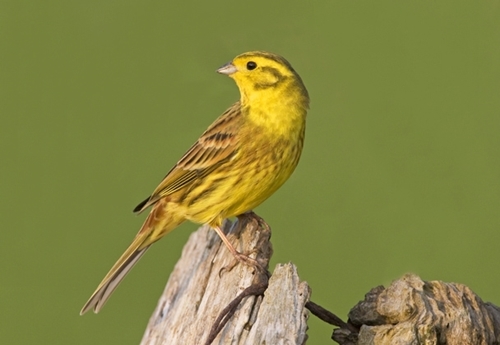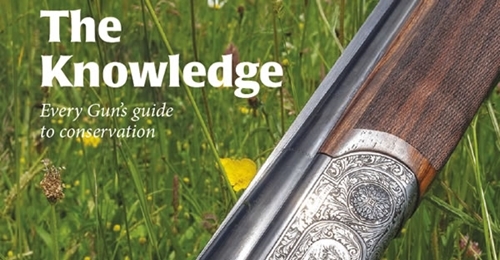
GWCT research lauded in House of Lords songbird debate
The decline in Britain’s songbird numbers was the topic of a House of Lords debate on 28th June, with several members acknowledging the important work the GWCT has done. The question was raised by the Earl of Caithness, who argued that the problem for farmers in England is that current agri-environment schemes cover only habitat.
He lamented the fact that, despite 70% of England’s farmland being under countryside stewardship schemes, farmland birds had declined by more than 56%. He pointed to the stark contrast of the results achieved at the GWCT’s Allerton Project as a better way forward, noting that ‘improving the habitat, combined with good management … have not only allowed both the arable land and woodlands to be improved, but benefited a whole range of wildlife’.
A once-in-a-lifetime opportunity
Many of those in the debate highlighted how Brexit provides an opportunity to reshape our agricultural policy. ‘Future subsidy should be pointed to the small to medium-sized farms, uplands and less favoured areas, perhaps focusing on wildlife and habitat schemes designed by the GWCT’ suggested the Earl of Shrewsbury, who went on to call the GWCT ‘a world leader’.
'Shoots, by their nature, are conservationists. They have to be.’
The Earl of Shrewsbury also joined his noble friend in recognising ‘the enormous contribution that the GWCT makes’, particularly the work undertaken by the Duke of Norfolk on his Sussex estate, in which ‘the songbirds found a friend’. The hard work undertaken by farmers was also appreciated by Baroness Jones of Whitchurch, who mentioned that ‘hedgerows are now being recreated, field borders are being left to grow wild, farmers are being rewarded for creating wildflower meadows’.
‘A substantial programme of education is needed’
If we are to improve the fate of our songbirds and other wildlife, educating those who use and enjoy our countryside into the reality of rural life is key. The role of invasive non-native predators was keenly discussed, be it cats, grey squirrels or ring-necked parakeets.
The ‘syrupy anthropomorphism of celebrity presenters who deny the reality of rural life’ came under fire from the Earl of Shrewsbury, who highlighted the need for scientific evidence to drive the debate and inform both government and the wider public.
Not all doom and gloom
In addition to the successes seen in Sussex and at the Allerton Project, Lord Gardiner of Kimble highlighted the ninefold increase in cirl buntings and the role that targeted management of predators, alongside land management methods, can benefit ground-nesting species. He brought the debate to a close by stating that ‘everyone should be able to enjoy ready access to a better environment with an increasingly healthy songbird population’.
For a full transcript of the debate, please click here.
Do you have The Knowledge?

Whether you’re new to shooting, a seasoned gun or just keen to learn more about the way the British countryside is managed, The Knowledge is for you. The book draws on over 150 scientific publications to provide you with a robust introduction into quarry species, the management of both habitat and predators and all the latest issues surrounding shooting and conservation. Order now for just £15.95.
Order now >